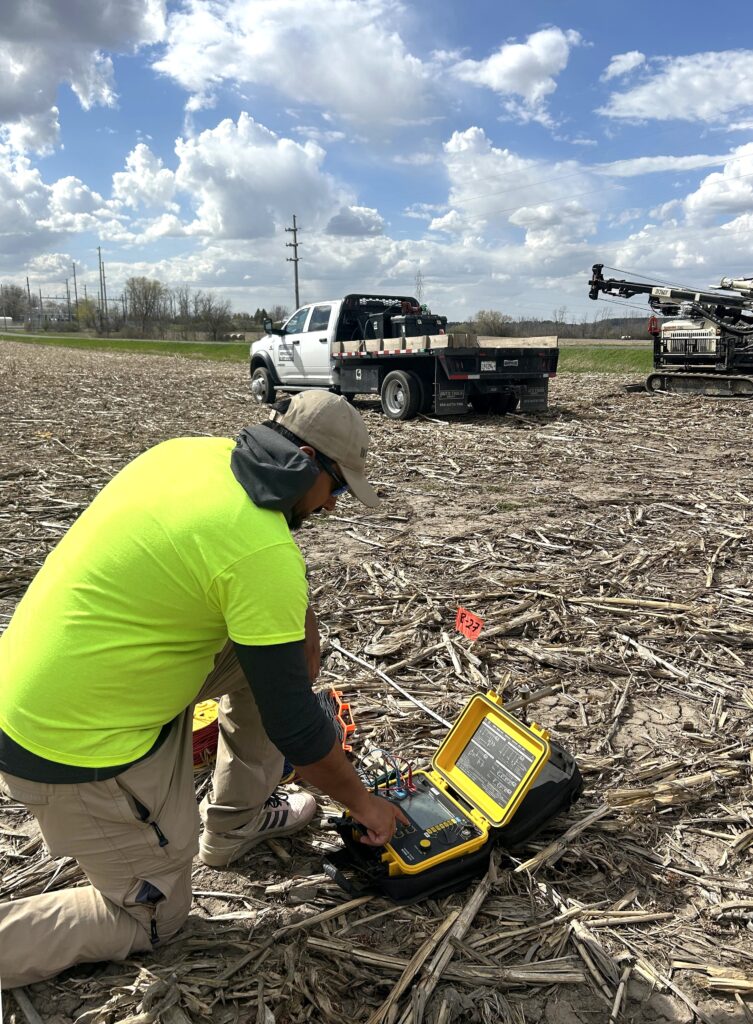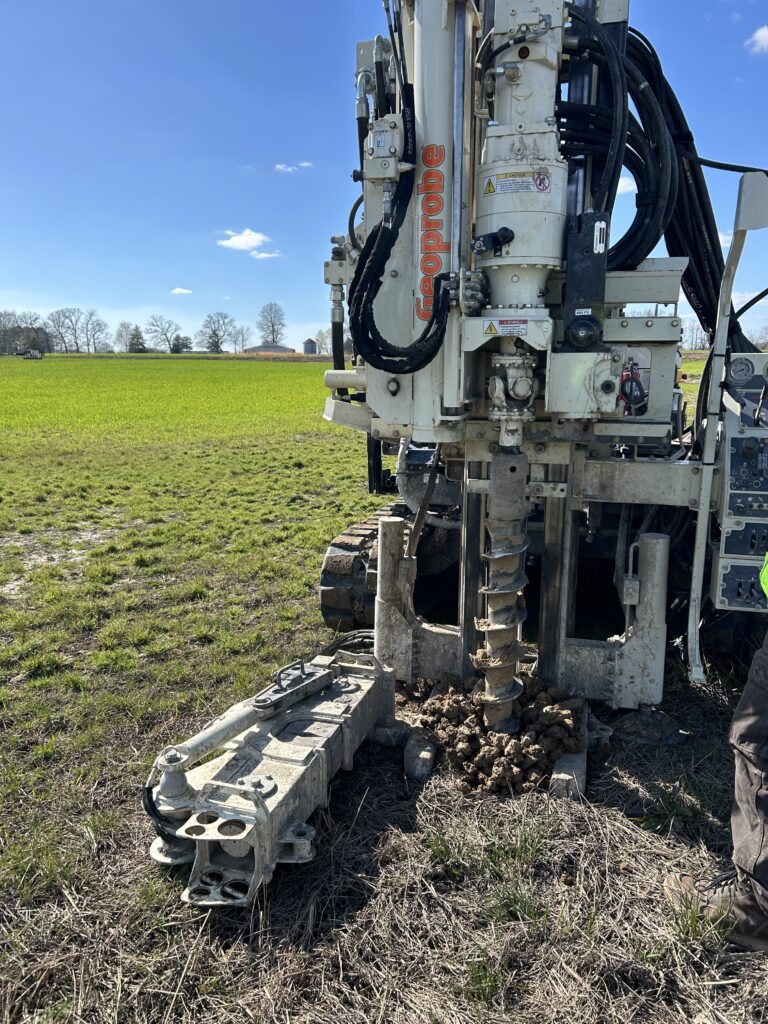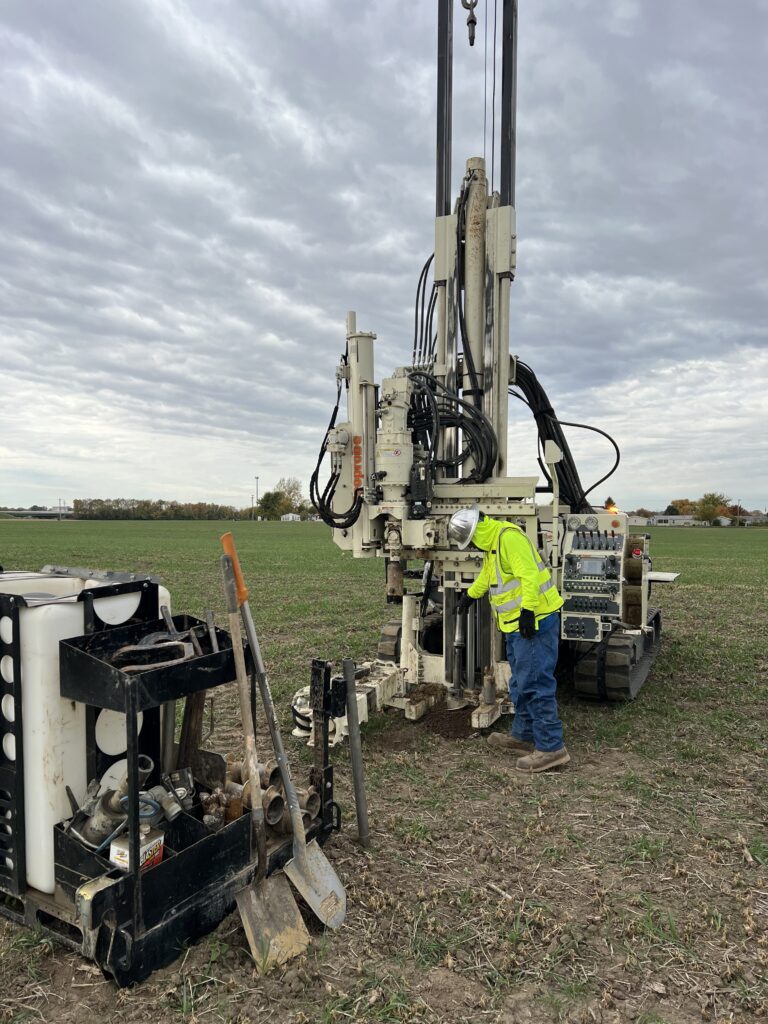Client: Various | Location: Various Midwest
Pioneer has performed geotechnical engineering services for proposed Solar Farm Arrays throughout Illinois, as well as other midwestern states. In support of proposed solar farm array construction, Pioneer has conducted in excess of 80 geotechnical investigations. Once in contract, Pioneer performs a complete investigation to provide its clientele with comprehensive reports that include all requested and otherwise pertinent information. Pioneer works closely with the Client, landowners/users, and other involved entities to provide the most cost-effective and best-fit procedure for the project.
A typical geotechnical investigation for proposed solar arrays will include soil borings performed using an ATV-mounted Geoprobe 7822DT or 3126GT drilling rig, advancing soil borings up to depths of 25 feet using hollow-stem augers. Sampling procedures, including the bulk sample collection at specified locations for various laboratory tests, follow ASTM Standard D-1586. For safety considerations, all borings are backfilled with excess soil cuttings. Samples are returned to Pioneer’s in-house laboratory for further examination, classification, and testing. As part of the solar testing program requirements, Soil Resistivity field testing using the Wenner 4-Point test method is utilized. Bulk samples recovered during drilling operations are used for an array of specified laboratory tests, including Thermal Conductivity, Soil Corrosion/Corrosivity, Electrical Resistivity, Grain Size Analysis, Atterberg Limit, Standard Proctor Test, and any other required analyses.
Pioneer’s engineers provide in-depth research and analysis for each solar site to ensure the Client is provided with pertinent, site-specific information. Curated information can include a cursory review of historical photographs, local geology, active/historical mining activity, evidence of mine subsidence, susceptibility of sinkholes in karst regions, and other natural or human-influenced hazards. All information necessary for foundation design is provided in the reports, including bearing capacity, skin friction, lateral earth pressure, frost heave analysis, seismic site class, equipment pad and access road recommendations, and more.




